How a Hong Kong raw vegan marathon runner prepares for a race, and why she began winning after giving up meat, eggs and dairy
Iris Mak, who eats a 90 per cent raw, 10 per cent cooked vegan diet, won a silver award at the Hong Kong 100km this year for finishing under 20 hours. Here she shares why she transitioned to her new diet and how she fuels up for a race
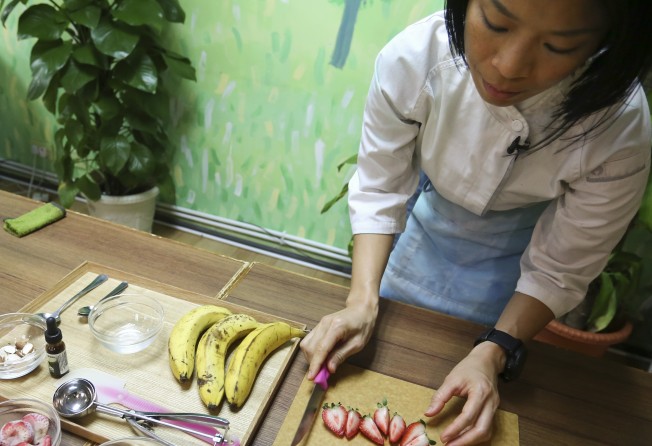
In a city where vegan runners are rare, the raw vegan kind are even rarer. “I think I’m the first one in Hong Kong,” says Iris Mak, a 41-year-old former media sales professional who left her job to complete a degree in child and adolescence nutrition degree at HKU Space.
Like many Hongkongers, Mak had always had a penchant for fish dishes and local meat-based snacks, but eschewed red meat as it gave her digestive troubles.
Watch: Iris Mak demonstrates how to make vegan ice cream
In 2012, after running the Standard Chartered Hong Kong Marathon for the first time, she joined the local Universe Running Club. She trained to run marathons with vegetarian coach Thomas Lam, who also connected her to the trail running community.
The same year she ran the 42km Shanghai Marathon. Still an omnivore at the time, she clocked in at three hours 53 minutes.
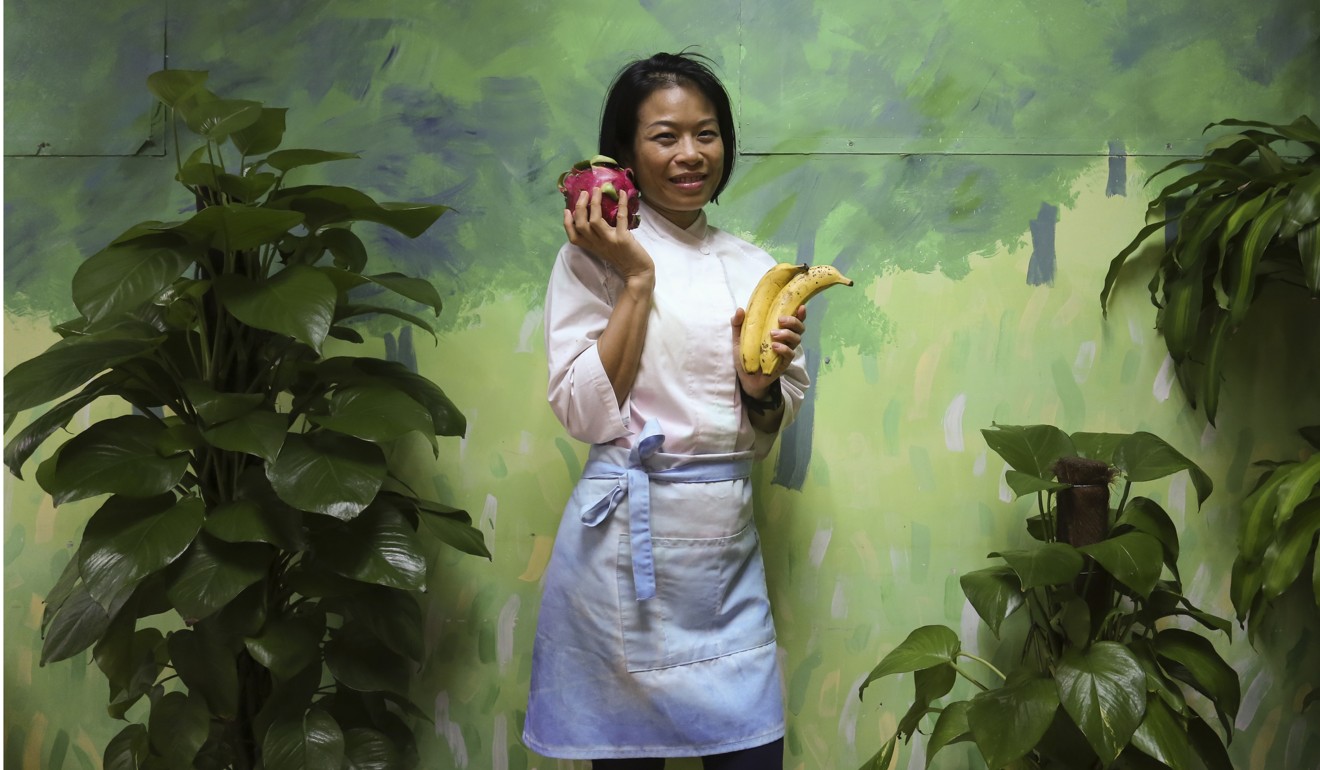
Various experiences over the following few years – including working at a detox company, volunteering at a raw vegan kitchen, and meeting raw vegan chefs and experts – saw Mak become more interested in raw plant-based diets. But it wasn’t until early 2014, when she became a chef at Greenwoods Raw Cafe in Tsim Sha Tsui – run by raw vegan expert Dr Simon SC Chau – that she decided to take the plunge herself.
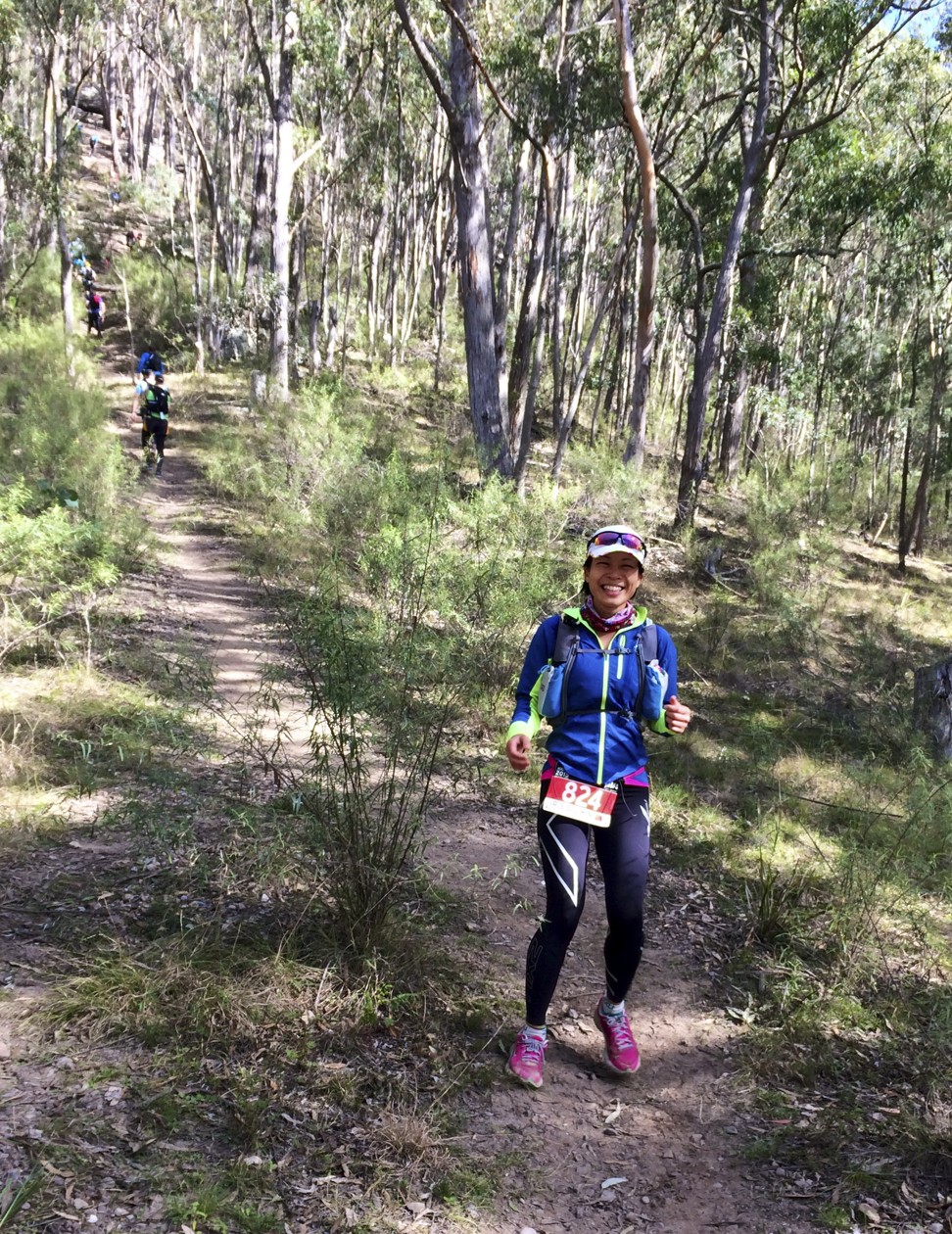
Eight months later she had transitioned to a 100 per cent raw vegan diet. That meant giving up meat and “dead food” – anything heated above 41 degrees, as some nutrients such as vitamin C, antioxidants and enzymes are lost during cooking above that temperature, she says. She was guided by Chau, a raw vegan since 2011, to make sure she adopted the diet in a healthy way.
As a raw vegan, you shouldn’t be afraid to eat good fat. My favourites are avocado and coconut meat
After going raw vegan, she started winning races including the 2014 Night Course Raleigh Challenge in Hong Kong, a 48km race where she and her partner won in the female team-of-two category. She finished fifth at the Taiwan Action Asia 50km in 2016 and this December she will be taking on the North Face 50km in Hong Kong.
Mak is convinced her diet helps her athletically – not only to run faster, but to recover more quickly, too. Today she is an educator, chef and speaker for raw veganism, and teaches raw vegan food preparation at Greenwoods on a freelance basis.
Since becoming 100 per cent raw vegan, she decided to scale back slightly to a 90 per cent raw vegan, 10 per cent cooked vegan diet.
What prompted you to shift from 100 per cent raw vegan to 90 per cent?
When I became a 100 per cent raw vegan, it was amazing. I didn’t feel uncomfortable at all. But I encountered problems when socialising with others. Hong Kong isn’t a place where there are many raw vegans. In Chinese society, people see raw vegans as weird, religious or ill in some way. So I became 90 per cent raw vegan to make it easier to go out and socialise with friends and family.
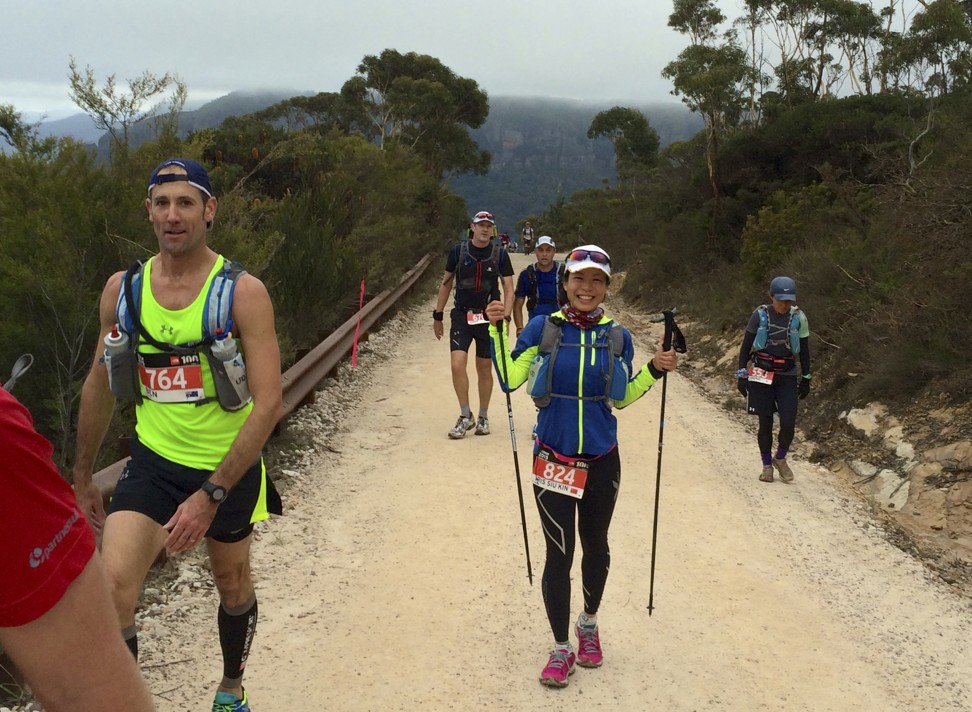
Did anything else contribute to this shift?
Going 100 per cent raw makes you very sensitive to what you eat. If I took medication, it would hit me twice as hard as a regular person. In a way, my diet made me vulnerable at races.
I participated in a 100km race in Blue Mountain, Australia a couple of years ago, and by the 70km checkpoint, it was night and I was cold and craving hot and salty food. At the checkpoint there were cup noodles. I tried to resist them but it was 3am and I had some; immediately I felt energised. But later on during the race I felt so sleepy. I bumped into another racer and we pinched and talked to each other to stay alert, but in the end we both needed a five-minute power nap to recharge for the rest of the race.
After the race, I realised my body is too sensitive to cooked food, especially food eaten during a race, [and] that if I ate “naughty” foods, my body would respond in a strong way. This was also part of my reason for becoming a 90 per cent raw vegan.
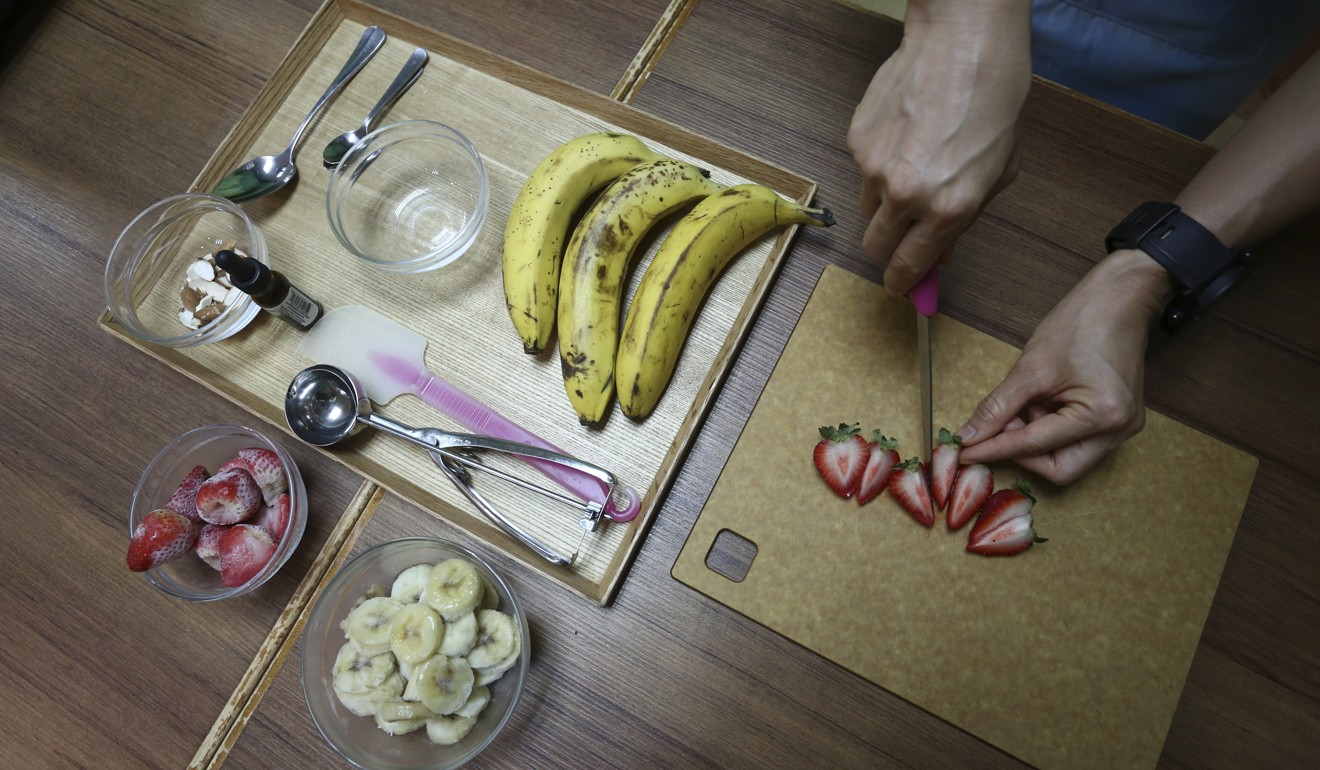
What do you have for breakfast?
A litre of a green smoothie made of three or four bananas – which give the drink a creaminess and energy – plus one other type of fruit, such as kiwi, pineapple or mango, and dark greens like kale.
Where do you get your protein?
Mainly from greens and nuts. I love hempseed, which is another source and also has good omega-3 content.
As a raw vegan, you shouldn’t be afraid to eat good fat. My favourites are avocado and coconut meat. I also eat nuts that have been soaked overnight – this helps rid of them of the enzyme inhibitor that prevent nuts from sprouting and it makes them easier to digest.
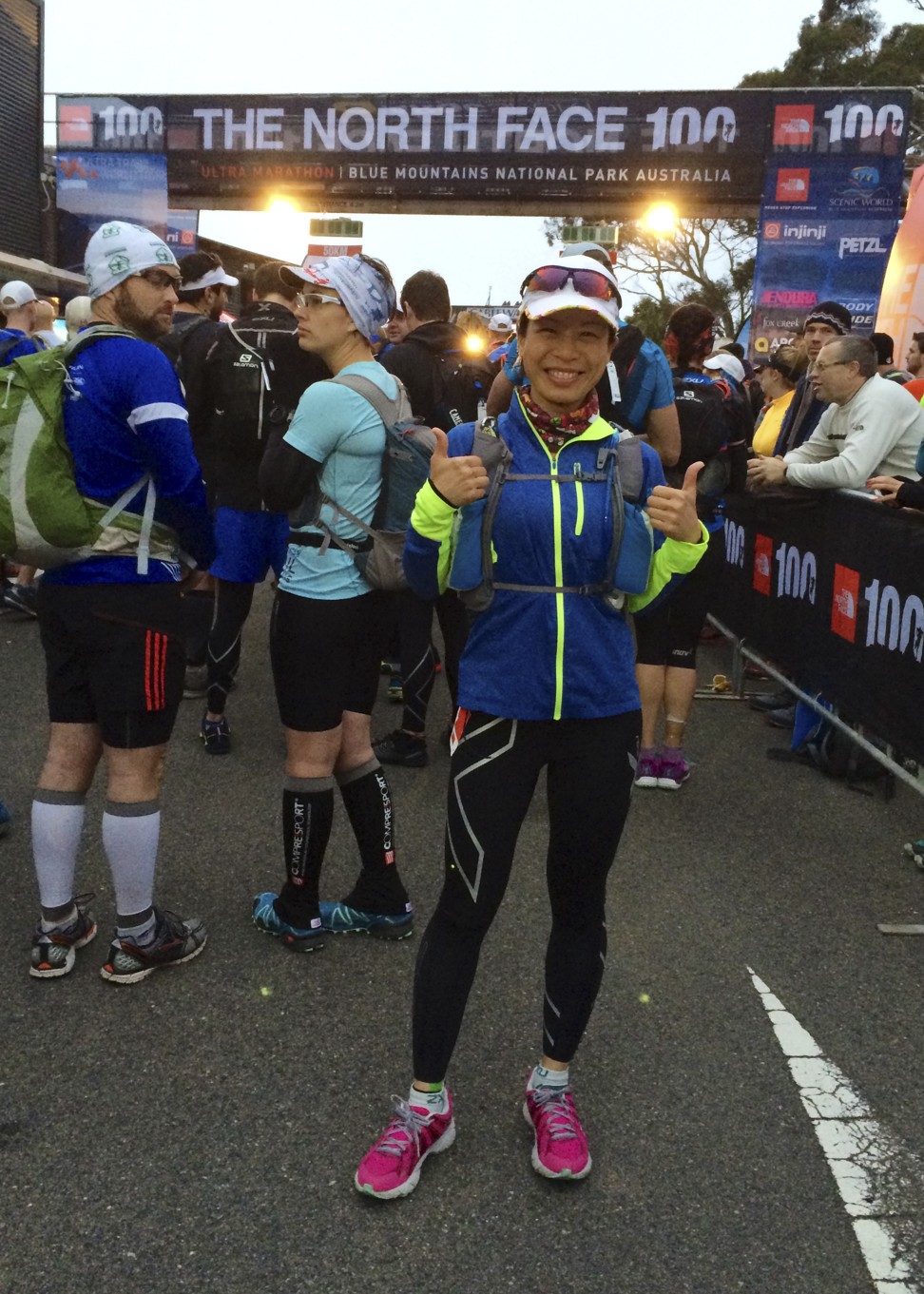
Chia seeds are another favourite, as are goji berries – which have the highest protein content among fruits and are packed with antioxidants.
How do you prepare for a race?
Based on online research and advice from Dr Chau, I practise fruit-loading, which is another version of the carb-loading strategy many endurance athletes use.
Around a week before the race I load up on protein for three days then fruit-based carbohydrates for the next three days – more carbohydrates than my usual diet. My daily diet would be composed of 75 to 80 per cent fruit, around 20 per cent greens, and around 5 to 10 per cent fat from seeds and nuts.
During this period I avoid highly fibrous food, especially on the morning of the race to avoid frequent toilet visits. So during my fruit-loading phase, I eat very sweet and ripe fruits like bananas, mangoes and skinless apples.
What are your favourite foods?
Chocolates, but the raw variety made with cacao. I love raw vegan ice cream, and also mangoes, bananas, durians and young coconuts.